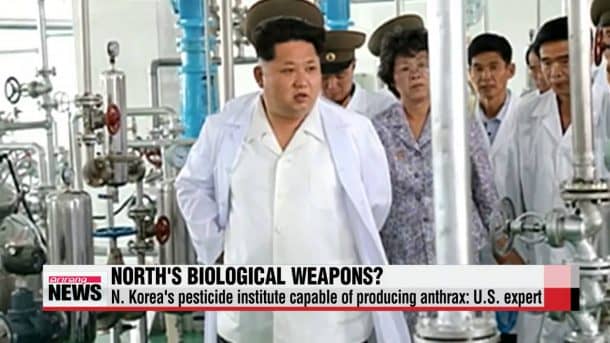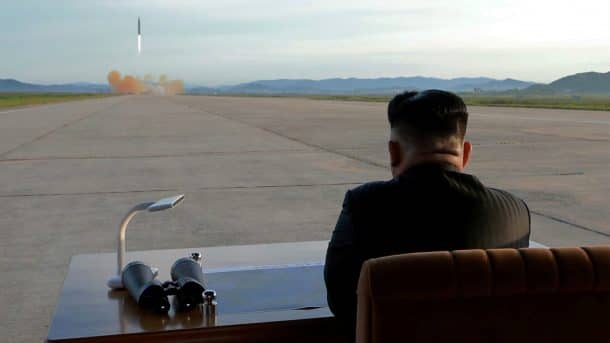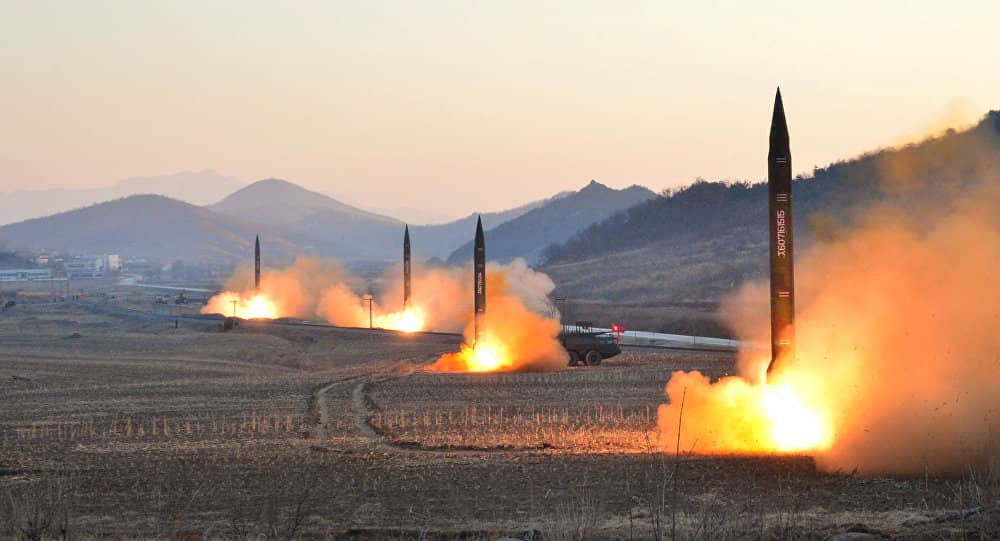North Korea is testing to load anthrax onto intercontinental ballistic missiles which are aimed at the United States. The combination of biological weapons with long-range missiles sounds like a nightmare at the first glance but it’s bizarre given the country’s emphasis on nuclear weapons. Japan’s Asahi newspaper citing an unnamed Japanese intelligence source with ties to South Korean intelligence, says that North Korea is experimenting with the biological weapon anthrax to determine if the spores can survive the heat and pressure of reentry aboard a missile warhead.
According to The Asahi Shimbum, the tests are centered around whether or not spores can survive temperatures of up to 7,000 degrees. North Korea has already demonstrated a new intercontinental ballistic missile the Hwasong-15 which, missile experts believe, can reach all of the United States. It is assumed that anthrax-filled warheads will be deployed on these missiles aimed at US bases in Japan, Guam and South Korea. This is a curious story for a number of reasons. One, the source of an anonymous Japanese intelligence official is weak. Secondly, transporting anthrax spores in a missile warhead is very easy.

Anthrax pores would not have to survive 7,000-degree reentry temperatures as the warheads insulate their payloads against such extremes of heat. If all ICBM warheads had to survive a 7,000 degree roasting, any nuclear weapon payload would burn up during atmospheric re-entry. Although North Korea does not have a biological weapons program, it is been eclipsed by the country’s nuclear program. Biological weapons such as anthrax used to be one of the country’s main weapons of mass destruction. Nuclear weapons quicky incinerate their targets with heat and blast, irradiating everything around it with lethal levels of radiation. A biological weapon such as anthrax could take weeks or even months to generate the same level of destruction.

In simpler words, there is little point in deploying anthrax spores on the country’s handful of ICBMs if nuclear weapons are available. That’s not to say that North Korea wouldn’t use anthrax in a war. If a war begins, North Korea’s only real option is to attempt to shock the US and its regional allies into not responding with a regime-ending campaign. Shorter range missiles such as the “No Dong” would almost certainly be launched against US military bases in Japan, Guam and South Korea loaded with nuclear weapons, chemical weapons or anthrax. Decontaminating such bases in the aftermath of an attack could be a lengthy process that could shut bases for days, weeks or even months. Let’s hope we never find out exactly how long.


